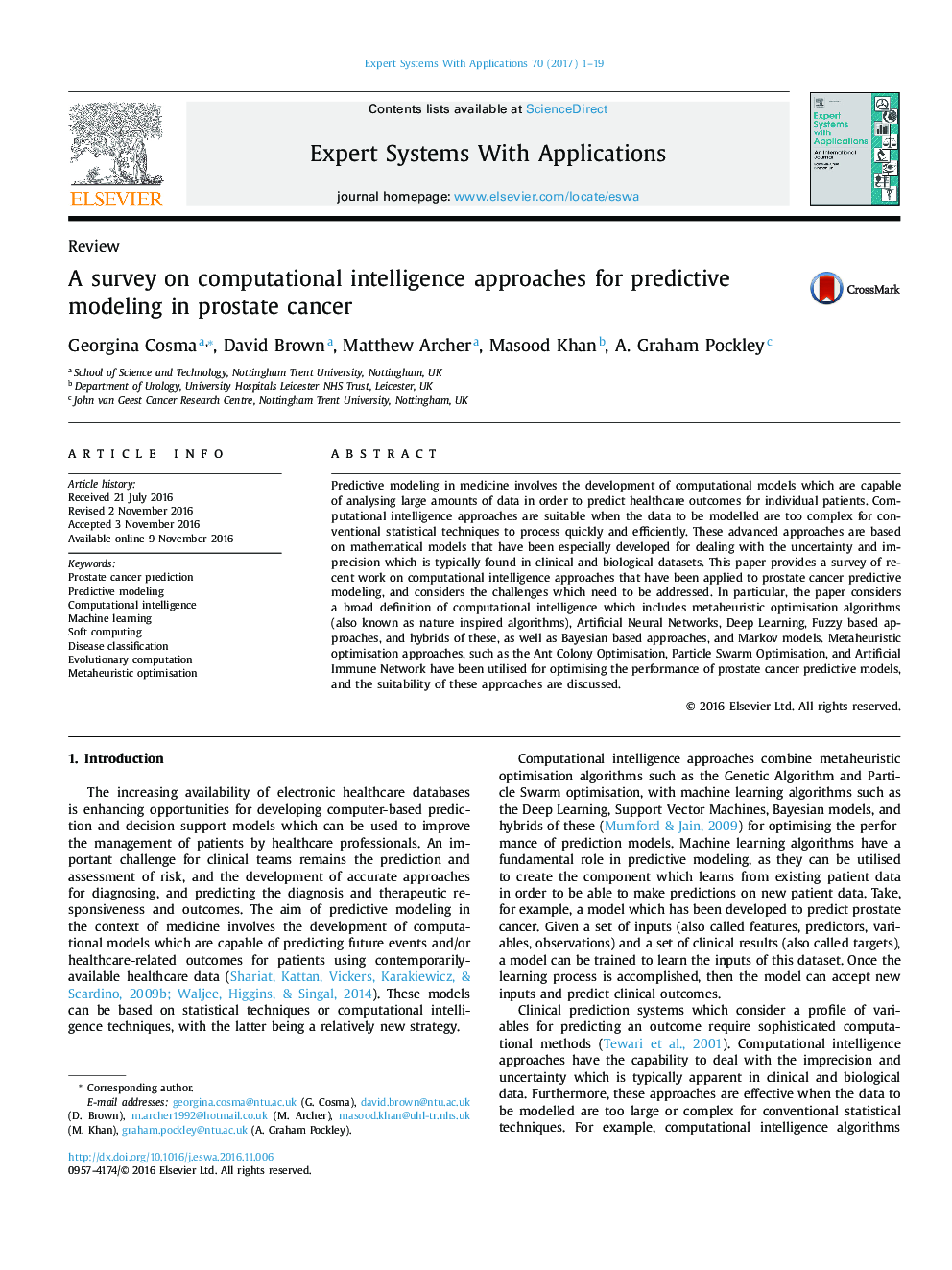| Article ID | Journal | Published Year | Pages | File Type |
|---|---|---|---|---|
| 4943563 | Expert Systems with Applications | 2017 | 19 Pages |
Abstract
Predictive modeling in medicine involves the development of computational models which are capable of analysing large amounts of data in order to predict healthcare outcomes for individual patients. Computational intelligence approaches are suitable when the data to be modelled are too complex for conventional statistical techniques to process quickly and efficiently. These advanced approaches are based on mathematical models that have been especially developed for dealing with the uncertainty and imprecision which is typically found in clinical and biological datasets. This paper provides a survey of recent work on computational intelligence approaches that have been applied to prostate cancer predictive modeling, and considers the challenges which need to be addressed. In particular, the paper considers a broad definition of computational intelligence which includes metaheuristic optimisation algorithms (also known as nature inspired algorithms), Artificial Neural Networks, Deep Learning, Fuzzy based approaches, and hybrids of these, as well as Bayesian based approaches, and Markov models. Metaheuristic optimisation approaches, such as the Ant Colony Optimisation, Particle Swarm Optimisation, and Artificial Immune Network have been utilised for optimising the performance of prostate cancer predictive models, and the suitability of these approaches are discussed.
Keywords
Related Topics
Physical Sciences and Engineering
Computer Science
Artificial Intelligence
Authors
Georgina Cosma, David Brown, Matthew Archer, Masood Khan, A. Graham Pockley,
